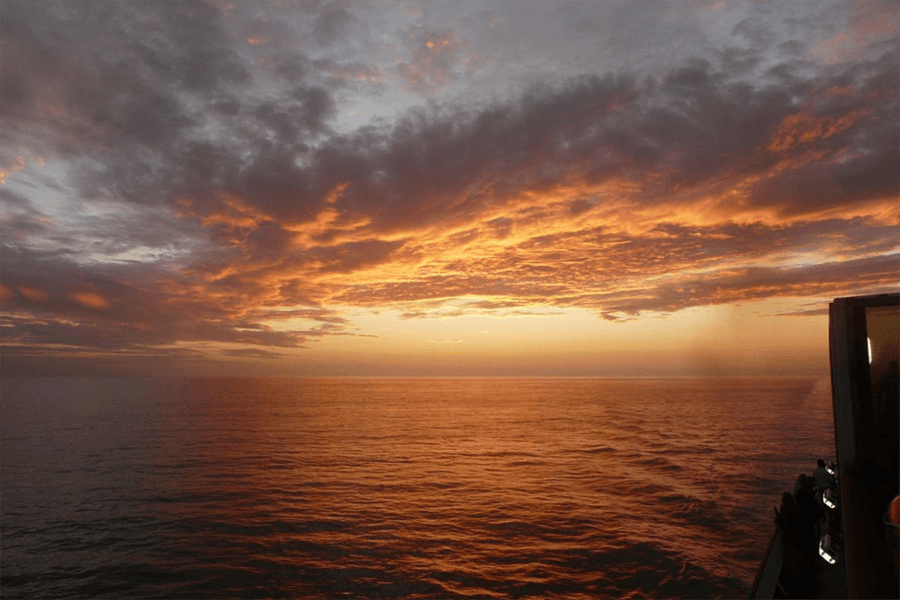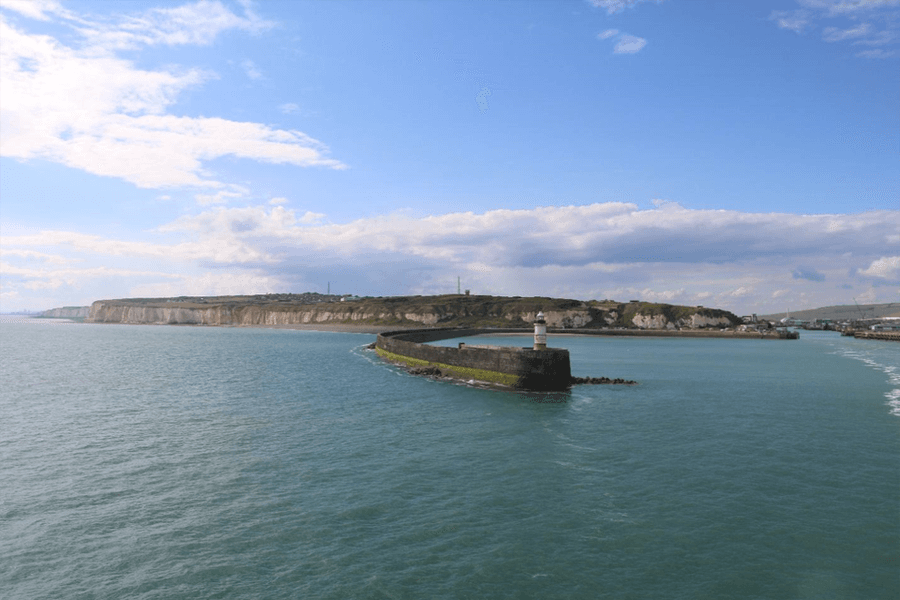Hello everyone, Martha here. It’s the end of the season, and I would like to give you an update on my summer travelling across the English Channel from Dieppe - New Haven.
I was lucky enough to have many great sightings with guests, of common dolphins and harbour porpoises. Of course, as with all wildlife watching, sometimes the dolphins decided to show up when we are doing other things, but that’s just how it goes!
After a few months on the Dieppe-New Haven route, I realized that sometimes only luck would allow us to spot those animals. We tend to expect to see dolphins all the time since they are pretty curious and loveable animals, but we need to remember that these are wild animals. . Therefore, spotting one every time or every day is not a done deal!
The summer was full of beautiful days, and there were times when we didn’t spot any cetaceans, however, birds were always with us. Whenever we did have a sighing, the animal’s beauty was always revealed, giving us a sensation of fulfilment and excitement. One day, a super pod of harbour porpoises was seen - a beautiful experience. Remembering that these wild animals had graced us with their presence always made me thankful when they allowed us to see them.
During my time on the ship, I also spent lots of time talking to passengers. These conversations sometimes included discussions on a global scale about the marine environment and marine ecosystems. The passengers were extremely friendly, and it was particularly nice to see that many were interested or involved in protecting our earth. I had the opportunity to exchange many stories with them about whales, dolphins and other marine mammals, many of which will stick with me for the rest of my life. From these conversations, I also learnt a lot and hope I could pass on my knowledge to everyone that joined me.
One of my favourite stories from the summer, was from a scientist who went onto an iceberg to take ice samples. They had to be on all fours to drill and take samples of the ice, whilst in a black suits to keep them warm. After a bit, they started to feel the iceberg moving jerkily. Each time it became more and more violent. To understand what was happening, they stood up to look around. At that moment, the impact stopped, and they saw a couple of long black dorsal fins moving away from the iceberg. It was a pod of orcas that were hunting. It’s possible that they thought of the scientist as a seal due to the black jumpsuit, but the moment they popped out of the water, spy hopping, they quickly realized that it was a human and not food. With the impact, they were trying to reverse the iceberg to catch the prey on it. That must have been one terrifying experience, but an incredible story to share!
I also had a few recurring questions during the summer, especially regarding the Seine, a French river. This summer, the Seine was not a welcome place for cetaceans as, sadly, we saw an orca and a beluga dying after getting lost in this river. It created a lot of questions regarding the presence of the animals here and what was done to try and prevent their death. Unfortunately, rescuing cetaceans in rivers is quite complicated and the bigger the animal, the more complex the rescue is. Their recovery was different because they were different sizes (around six meters for the orca and four for the beluga). You can find out more about attempts to rescue the beluga on the ORCA website here. There was also a minke whale that entered the Seine harbour but returned to the sea on the same day!
I really enjoyed each day I spent sailing across the English Channel, it is a friendly and very pretty place and I hope to be back there soon. It was wonderful to meet you all, share stories, and look for cetaceans - I hope you meet you all again.
Ocean conservationist Martha (English Channel)


